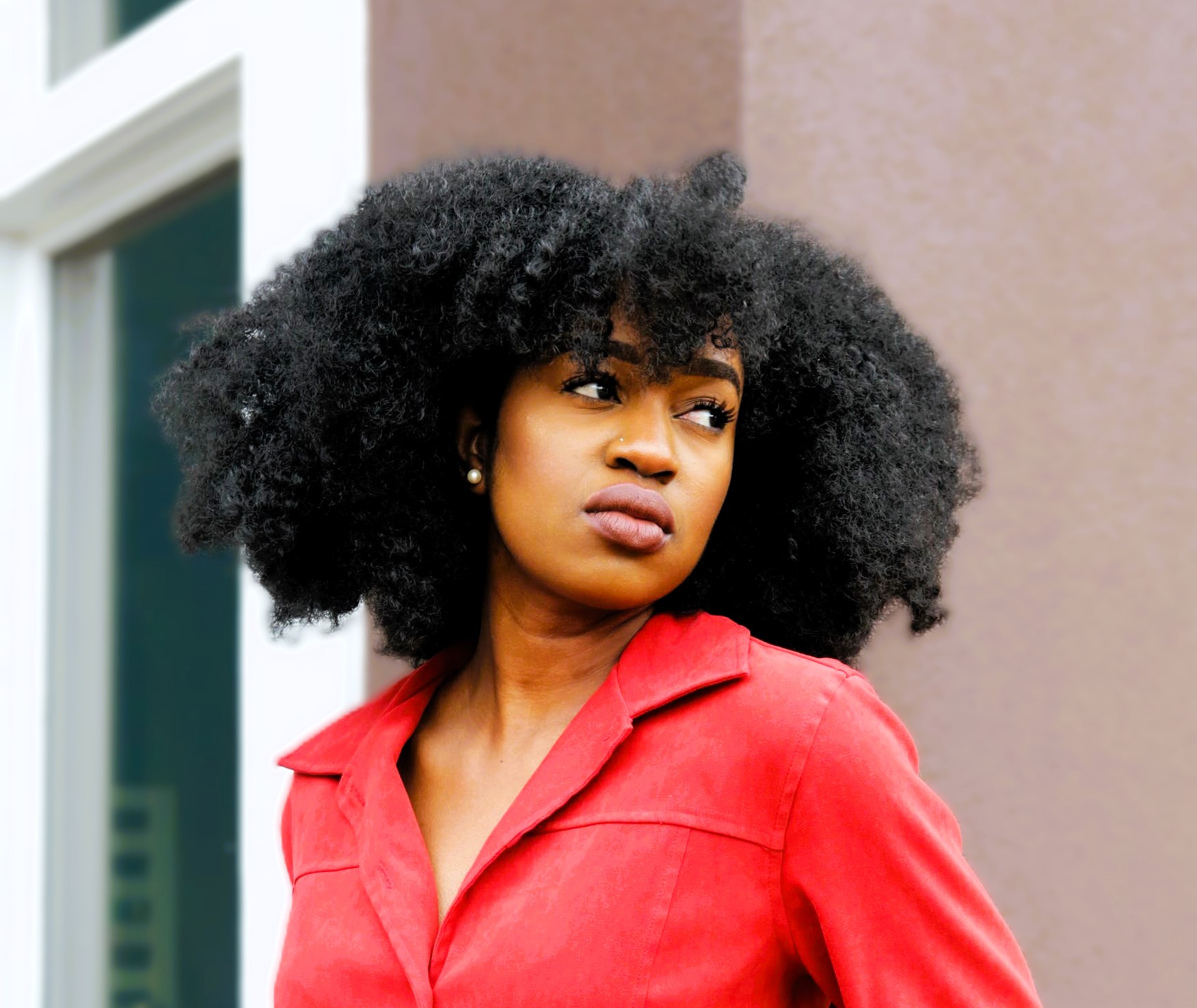
Embracing the Beauty of Natural Hair: A Journey to Self-Love and Empowerment

In the vibrant tapestry of African culture, one cannot ignore the significance of hair. It has been a symbol of identity, tradition, and beauty for centuries. However, in recent times, the rise of wigs and weaves has become a prevalent trend among African women. While these hairstyles offer versatility and creativity, it's crucial to explore the effects they may have on the overall well-being of African women and advocate for the beauty of natural hair.
 The Allure of Wigs and Weaves:
The Allure of Wigs and Weaves:
Wigs and weaves have undoubtedly become a popular choice among African women, offering a quick and convenient way to switch up hairstyles without committing to a permanent change. The allure of a perfectly styled wig or a flawlessly installed weave is undeniable, providing an instant boost of confidence and glamour.
The Hidden Dangers:
However, it's essential to shed light on the potential dangers associated with prolonged use of wigs and weaves. Constantly subjecting the scalp to tight braids or gluing extensions can lead to traction alopecia, a condition where hair is pulled out from the roots due to prolonged tension. This can result in thinning hair, bald spots, and damage to the hair follicles.
Moreover, the chemicals and adhesives used in the application and maintenance of wigs and weaves can irritate the scalp and, in some cases, lead to allergic reactions. The lack of proper ventilation can also create a breeding ground for bacteria and fungi, causing scalp infections.
- Traction Alopecia Prevalence: A study published in the "American Journal of Clinical Dermatology" (2003) found that traction alopecia, a common consequence of tightly styled hairstyles like braids and weaves, affects a significant percentage of African American women. The research indicated that up to one-third of African American women may experience traction alopecia due to hairstyles that exert tension on the hair shafts.
- Chemical Exposure and Scalp Irritation: According to a report by the "International Journal of Trichology" (2011), the adhesives and chemicals used in the application and maintenance of wigs and weaves can lead to scalp irritation and allergic reactions. The study emphasized the importance of proper care and consideration for the potential health risks associated with these hair styling practices.
- Scalp Infections and Microbial Growth: A research article in the "Journal of Cosmetic Dermatology" (2007) highlighted the increased risk of scalp infections due to the lack of proper ventilation under wigs and weaves. The study discussed how the warm and moist environment created by these hairstyles can contribute to the growth of bacteria and fungi, potentially leading to various scalp infections.
The Beauty of Natural Hair:
Amidst the allure of artificial enhancements, there is a growing movement encouraging African women to embrace their natural hair with pride. Natural hair is a celebration of one's heritage and a powerful statement of self-love and acceptance. It reflects a connection to the roots, a reclaiming of identity, and a rejection of Eurocentric beauty standards.
 Benefits of Keeping Natural Hair:
Benefits of Keeping Natural Hair:
- Versatility: Natural hair is incredibly versatile, allowing for a myriad of styles, from afros to braids, twists, and locs. The possibilities are endless, encouraging creativity and self-expression.
- Healthier Scalp: Embracing natural hair means avoiding the potential dangers associated with the use of chemicals, heat, and tension that often accompany wigs and weaves. This can lead to a healthier scalp and stronger hair.
- Economic Empowerment: The natural hair movement has given rise to a booming market for natural hair care products, providing economic opportunities for African entrepreneurs and encouraging the growth of the local beauty industry.
As we celebrate the beauty of natural hair and advocate for self-love and empowerment, we invite you to share your own natural hair journey. Your story has the power to inspire and uplift others within our community. Use the hashtag #MyNaturalJourney to connect with like-minded individuals, fostering a sense of unity and pride in embracing our roots.
Join the natural hair movement by sharing this article with friends, family, and on your social media platforms. Let's amplify the message of self-acceptance and celebrate the diverse beauty that defines us as proud Africans. Together, we can redefine standards of beauty and encourage a world where every curl, kink, and coil is embraced with pride. #NaturalHairRevolution #EmbraceYourRoots #ProudlyAfrican
.


